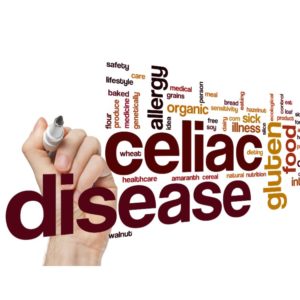
If your child has recently been diagnosed with celiac disease, you may be wondering what it is and why there is so much talk about gluten. Find your answers in part one of our four-part series of celiac basics!
If you feel overwhelmed by an information overload after your child’s new diagnosis, you aren’t alone! We’re here to guide you through the basics of what you need to know about celiac disease and the gluten-free diet your child should be following to make sure he is healthy and thriving!
What is celiac disease?
Celiac disease is estimated to affect approximately 1% of Americans and about 1 in 100 people worldwide, which varies by age, sex, and location in the world. It is an inherited autoimmune disease, which means your child inherited the gene from someone in your family. This means it’s also a good idea to have your other children tested for the gene, regardless of whether or not they currently have symptoms.
Because it is an autoimmune disease, the body attacks itself, causing damage that can end up limiting growth and organ functions if proper action isn’t taken. There are three things necessary for celiac disease to develop:
You must have the celiac gene.
These are specifically HLA-DQ2 or HLA-DQ8 alleles. The catch with this is that you can have the gene but still not have celiac disease, which is why the next two factors come into play.
You must be eating certain foods.
The thing that makes celiac disease unique among autoimmune conditions, is that your child HAS to be eating certain foods. These are foods that contain a particular type of protein, called gluten. A gluten-free diet means eliminating wheat, rye, and barley.
The disease must be triggered.
This may be possible due to environmental factors such as poor hygiene, antibiotic use, early exposure to gluten during infancy, or an otherwise harmless virus.
This means that, unlike many other autoimmune diseases, where treatments are often difficult and drug based, the treatment for celiac disease can be under your control through diet alone.
Is my child properly diagnosed?
The diagnosis process for celiac disease usually starts by screening using a gene test which can rule out but not diagnose the disease. Then an anti-tissue transglutaminase immunoglobulin A (tTG IgA) blood test is done, which is the preferred blood test for anyone two years old or older. If the screening shows that the celiac genes are present and the blood test comes back positive, a gastroenterologist, a doctor who specializes in the digestive tract, will examine your child’s small intestine. This is done through a procedure called an endoscopy. The most important thing to remember before this testing is done is that your child must be eating gluten for 2-4 weeks for accurate test results from the biopsy. If gluten is the trigger, and it is not being eaten, the small intestine may appear normal, resulting in a potential false negative. This may extend the time it takes to get diagnosed. So, it is important to have your child continue eating products with gluten if the diagnosis has not yet been made. Remember, if your child has the gene it isn’t a confirmed diagnosis!
What happens if my child continues to eat gluten after diagnosis?
When celiac disease goes undiagnosed and untreated, damage to the digestive tract can become severe and affect the absorption of nutrients. This can lead to a wide variety of health issues in the short-term and long-term such as:
- Short Stature
- Iron deficiency anemia
- Early onset osteoporosis or osteopenia
- Infertility
- Miscarriage
- Peripheral neuropathy
- Skin rash
- Cancers
- Nutritional deficiencies
Once a diagnosis is made, following a gluten-free diet is the prescription. This is the perfect time to find a celiac disease-specialty trained dietitian and gastroenterologist to add to part of your child’s regular health care team.
Do you suspect your child has celiac disease but doesn’t have a diagnosis yet?
If you suspect you or your child may have this disease it is important to speak with your physician in order to be properly diagnosed. Lifelong, strict adherence to a gluten-free diet is the only known treatment at this time. Therefore, once you obtain a medical diagnosis, make sure to regularly see a gastroenterologist and registered dietitian to help guide you through and maintain the necessary dietary and lifestyle changes. They can make GF living seem like a piece of cake (gluten-free cake that is)! Not sure where to start your research, check out our interview with Shelley Case, registered dietitian and author of Gluten-Free: The Definitive Resource Guide.
Next, read part 2 of our 4 part series: Where Do You Find Gluten in Food?









